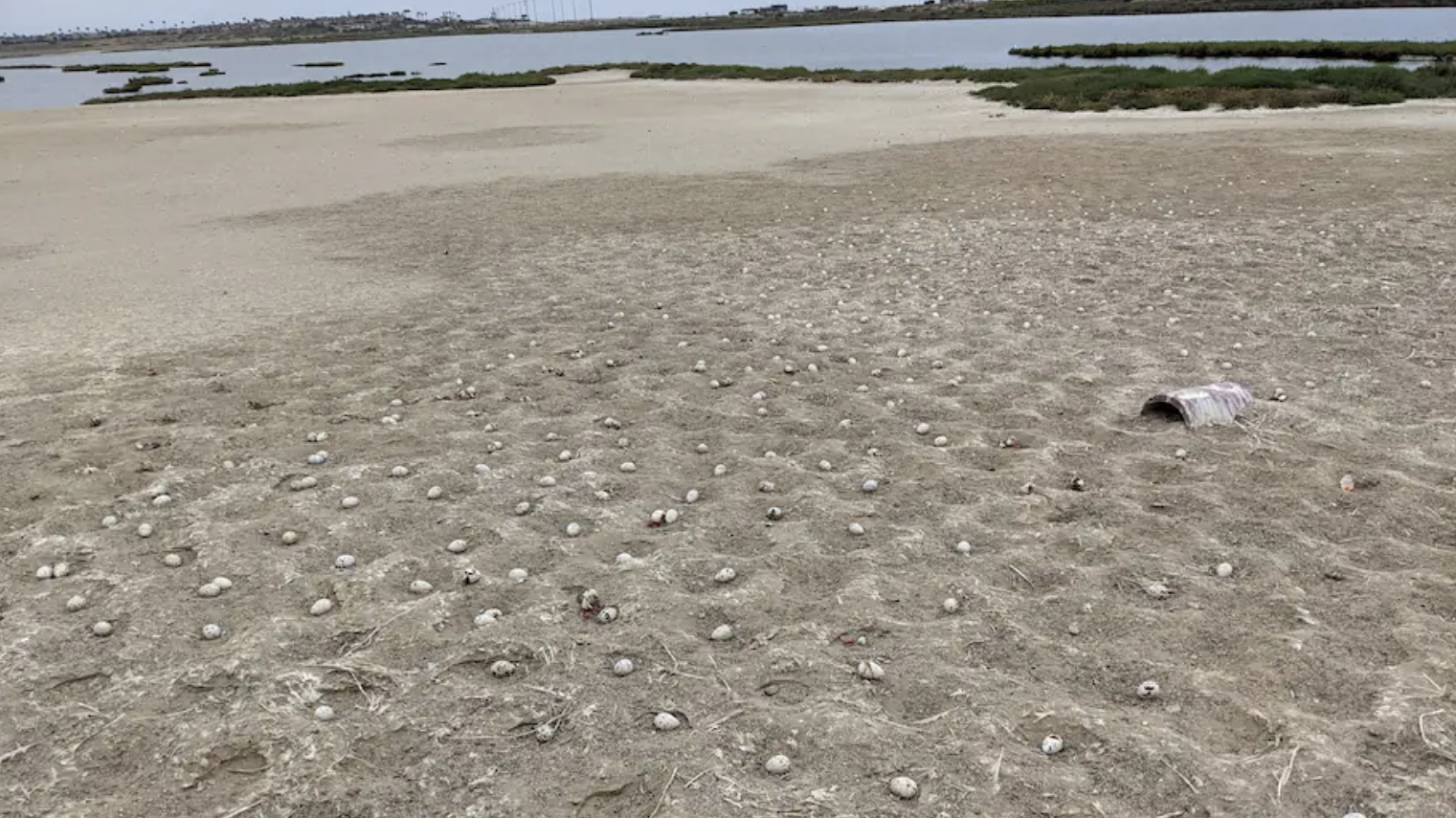Drone Crash Responsible For Potentially Wiping Out A Whole Generation Of Threatened Birds
Drone use is a growing threat to the delicate ecosystem of southern California
An entire generation of a nearly threatened seabird was wiped out after a drone crash scared them away from their nests in the Bolsa Chica Ecological Reserve in Huntington Beach, CA.
Approximately 1,500 to 2,000 eggs laid by highly skittish elegant terns were abandoned on May 12 after the drone crashed nearby. It was the largest abandonment event ecological scientists working at the reserve can remember, according to the LA Times. Normally, the birds stay until August, when they fly back to Central and South America with their chicks. The birds are easily startled, and the increasing popularity of the reserve, especially during COVID-19 lockdown when attendance doubled, is making it difficult to manage one of the last four known elegant tern nesting grounds.
The mass abandonment was the culmination of a year of issues caused by increased traffic to the reserve, which has seen the number of visitors double as the COVID-19 pandemic sent droves of people outdoors. There has been an uptick in bicyclists, who sometimes carve trails off established paths and disturb sensitive areas, and more people have been bringing dogs, which can scare wildlife and leave behind waste. Both are prohibited in the reserve, as they threaten to flush birds off their nests.
"They're seen as predators," Loebl said. "Think of a bird. When I migrate 100 miles, I want a safe place to nest, forage and breed, and they come here to do just that."
But nothing has been as catastrophic as drones, which are being flown over the reserve with increasing frequency.
The elegant terns also failed to nest in another site in Los Angeles this year, making the failure of this site even more concerning for scientists. Although the FAA lists the airspace over the reserve as a "green zone" allowing hobbyist to fly drones, there are signs all over the park explaining their use is prohibited. Officials are now going to be cracking down on drone use in the reserve, and are working with law enforcement to find the operator of this particular drone and bring them to justice. From the Times:
"We will hopefully have some great footage of the user and what the drone did, its flight path, and be able to articulate all the elements we need to fulfill the violation for this person," he said.
Molsberry, who has been with the department eight years, said he'd never seen a drone crash-land in a reserve before this spring. But the May 12 crash was actually the second in a 24-hour stretch. The day before, a drone went down in Bolsa Chica near nesting sites of the California least tern and the snowy plover. The birds fled but eventually returned, "which was great," Loebl said. "Still sad, but great."
That drone operator came forward to claim the device and received a citation.
On Thursday, while KABC-TV Channel 7 was interviewing Loebl and Molsberry for a segment about the drone problem, a man pulled into the parking lot and started to fly a drone right above them, sending it directly toward another tern colony, Molsberry said.
"I actually ended the interview, contacted the individual, identified myself and issued that person a citation right there on the spot," he said. Television cameras captured yet another drone flying over the reserve whose operator couldn't be located.
While it is possible these terns may travel to other nesting sites, and may even produce a second set of offspring, it's impossible to know for sure. Officer Nick Molsberry of the California Department of Fish and Wildlife told the Times the ripple effects of this abandonment could be devestating.
"That's a full generation of birds not established," Molsberry said. "It's just so abnormal not to see them there right now."
Man, humanity is such a bummer.
